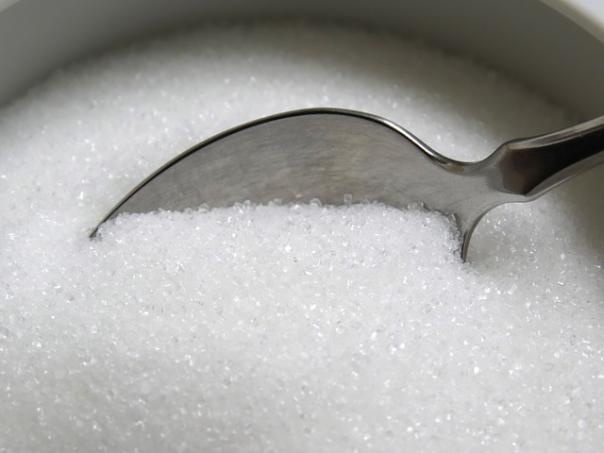Daily sugar intake should be halved, according to new report

The Scientific Advisory Committee on Nutrition (SACN) has advised the Government to radically reduce the intake recommendation of free sugars in the population’s diet.
The Committee has also advised the Government to increase the recommended intake of fibre in the population’s diet, in a ‘Carbohydrates and Health’ report published today.
Free sugars are those added to food (e.g. sucrose (table sugar) and glucose) or those naturally present in honey, syrups and unsweetened fruit juices, but exclude lactose in milk and milk products.
SACN has now recommended that these free sugars should account for no more than 5% of daily energy intake, equating to 19g or five sugar cubs for children aged four to six; 24g or six sugar cubs for children aged seven to 10; and 30g or seven sugar cubes for 11 years and over.
SACN were asked by the Department of Health and the Food Standards Agency to examine the latest evidence on the links between consumption of carbohydrates, sugars, strarch and fibre and a range of health outcomes, such as heart disease, type 2 diabetes, bowel health and tooth decay, to ensure the Government’s position on consumption was up to date.
Through the review, SACN found that high levels of sugar consumption are associated with a greater risk of tooth decay and the higher the proportion of sugars in the diet, the greater the risk of high energy intake.
Drinking high-sugar beverages results in weight gain and increases BMI in teenagers and children and consuming too many high-sugar beverages increases the risk of developing type 2 diabetes, according to the report.
As a result of the review, SACN has recommended that the intake of free sugars should account for no more than 5% of daily dietary energy intake, that the term free sugars is adopted, replacing the terms Non Milk Extrinsic Sugars (NMES) and added sugars.
The consumption of sugar-sweetened beverages (e.g. fizzy drinks, soft drinks and squash) should also be minimised by both children and adults.
The SACN report has also investigated the amount of carbohydrates and fibre being consumed, and the link to health outcomes and recommended that the current recommendation that starchy carbohydrates, wholegrain where possible, should form 50% of daily calorie intake is maintained.
Those aged 16 and over should also increase their intake of fibre to 30g a day, 25g for 11 to 15 year olds, 20g for five to 11-year-olds and 15g for two to five year olds.
Dr Fiona McCullough, chairman of the British Dietetic Association who are championing the report, said: “We have known for a number of years, and further evidence presented, shows that as a nation, we are consuming too much sugar.
“The time is now right to address this issue head on and improve the nation’s health in both the long and short term. I also welcome the need to increase fibre in the nation’s diet.”
“Let’s make no mistake that the recommendations sitting on the desk of the Government will be challenging to deliver, but I can assure you that dietitians around the UK are up for this challenge. Indeed, the profession has been at the forefront of many of the issues raised, such as adopting a policy in favour of taxing sugary fizzy drinks two years ago.”
The Scientific Advisory Committee on Nutrition (SACN) has passed its final recommendations to the Government relating to sugar and also fibre and wholegrains as part of their Carbohydrates and Health report.
In response to the recommendations, the British Nutrition Foundation (BNF) has developed a seven day menu plan illustrating what a diet that meets the new recommendations for free sugars and dietary fibre may look like for adults. The plan can be found attached below.
